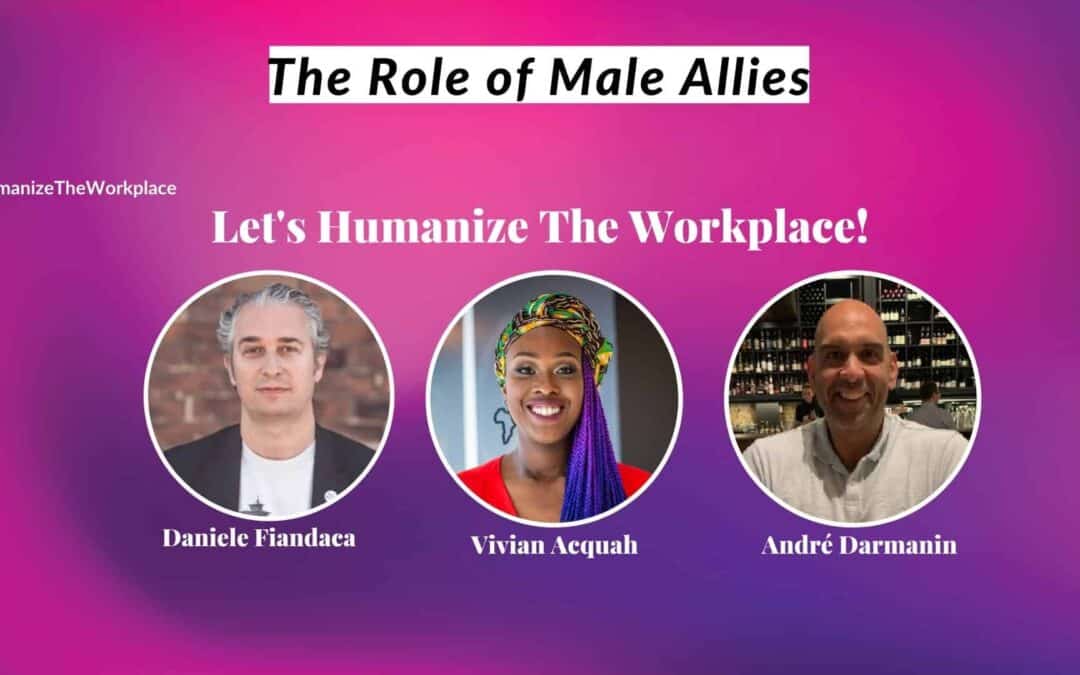
by Vivian Acquah | 21 Jan 2024 | Amplify DEI, Blog, Blog EN, export, Podcast
In the latest episode of “Humanize the Workplace,” hosted by Vivian Acquah, the role of male allies in promoting inclusive leadership, equity, and cultural intelligence took center stage. With thought-provoking insights from Daniele Fiandaca and André Darmanin, this episode provided a platform to delve into the challenges, triumphs, and evolving responsibilities of male allies in the workplace.
(more…)

by Vivian Acquah | 20 Oct 2021 | Amplify DEI, Blog, Blog EN
We can’t get very far in conversations about diversity, equity, and inclusion without talking about intersectionality. It’s a natural part of the conversation, and the lived experiences of each of us. So, we sat down with some panel experts to discuss intersectionality and how leaders should think about it, and how understanding and considering intersectionality will make a difference in our workplaces.
(more…)

by Vivian Acquah | 13 Oct 2021 | Amplify DEI, Blog, Blog EN
Leadership is never easy. The responsibility on leaders is great, as the authority and influence of their position have the potential for both harm and good. The last nearly two years of the COVID-19 pandemic have only added to the list of challenges for leaders to navigate.
But it has also brought opportunities to leaders. Opportunities to get to know their team members on a personal basis. Opportunities to learn and grow along with the powerful social movements of our time. And the opportunity to make necessary changes to embrace, activate, and amplify inclusive leadership practices.
(more…)


